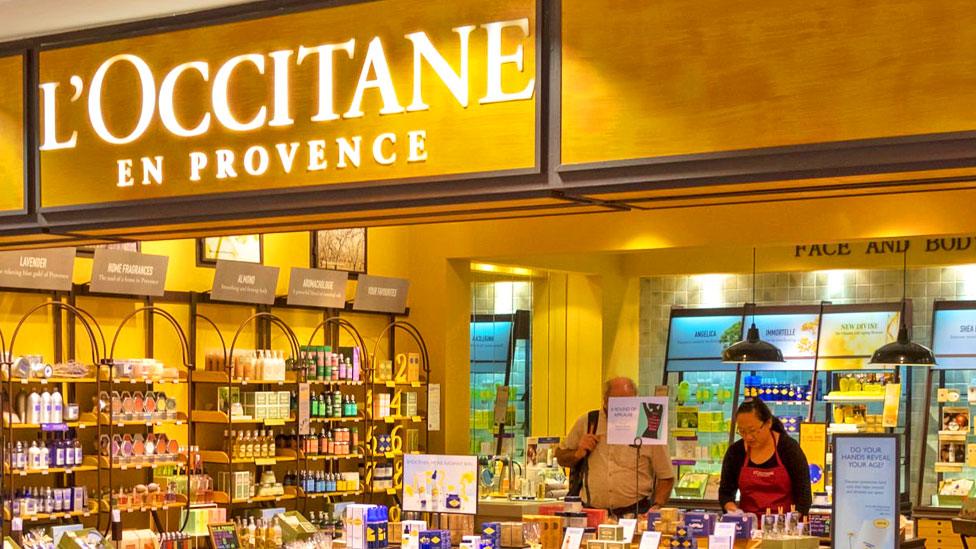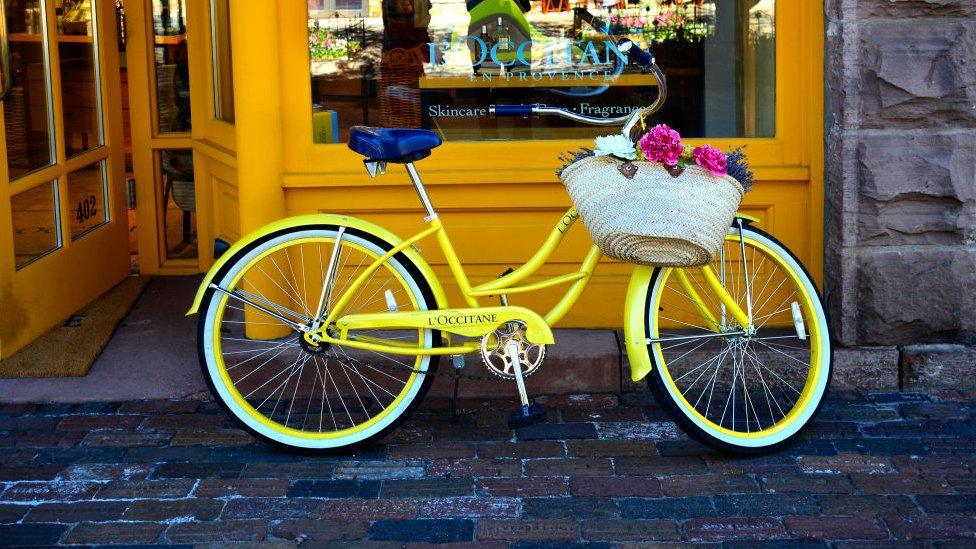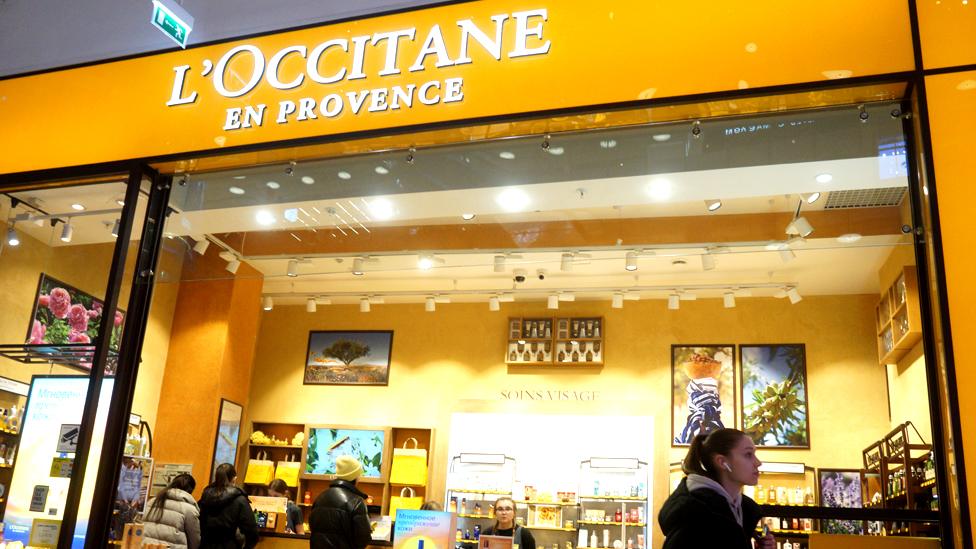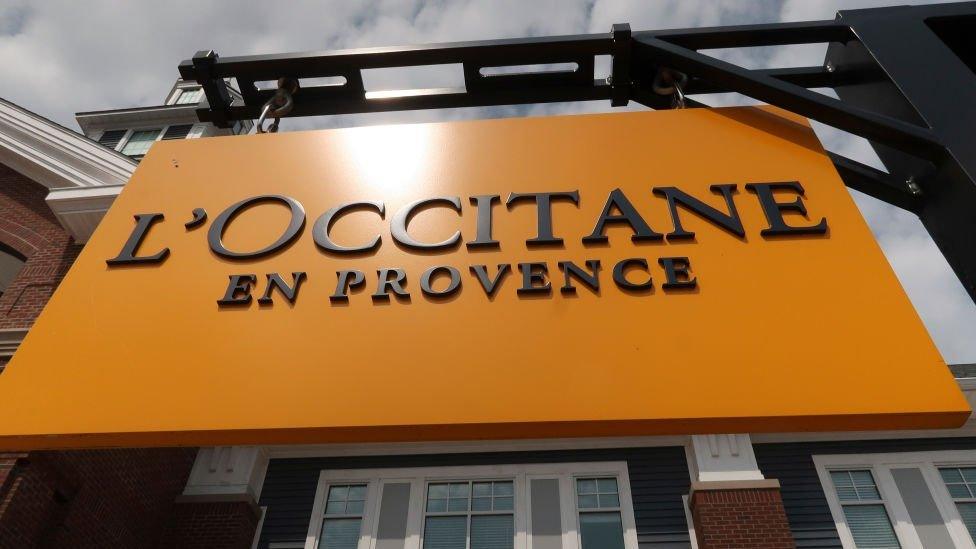L’Occitane shares jump as buyout on the cards
- Published

Shares in skincare chain L'Occitane International have jumped on the news its billionaire chairman is considering taking it private.
The company confirmed late on Friday that its controlling shareholder, Reinold Geiger, is eyeing up a deal for the shares he does not currently own.
Mr Geiger already controls almost three-quarters of the firm's shares.
The retailer has more than 3,000 outlets in 90 countries and has more than 8,500 employees.
Its shares closed more than 8% higher at HK$27.75 in Hong Kong on Monday.
The L'Occitane en Provence line is well known for its yellow branding and luxury creams, soaps and oils. It has grown massively since its start in a small truck in the markets of Provence, France.
The group now includes the likes of the Elemis collagen products and Korean skincare brand Erborian and reported profits of €239m (£206m) in the year to 31 March in its latest annual report, external.
Trading in L'Occitane International's shares were halted on the Hong Kong Stock Exchange on Friday after Bloomberg News reported that Mr Geiger was in advanced talks to take it private.
The business news channel said that the potential deal could value the firm at around $6.5bn (£5.1bn), or as much as HK$35 ($4.47; £3.53) a share.
But L'Occitane said in an exchange filing, external that reports that the buyout price could be that high were "false and without basis", but if a deal did go through, the potential offer price would not be less than HK$26 a share.

The L'Occitane en Provence line is well known for its yellow branding and luxury skincare products
Mr Geiger's investment holding company, L'Occitane Groupe, owns more than 70% of the chain.
The company's shares have risen by more than 40% in the last month.
Its latest annual report showed that it generated €2.13bn ($2.33bn; £1.84bn) in net sales around the world in the last financial year, up nearly 20% on the year before.
Priding itself on the promotion of its recycling and sustainability programmes, it drew criticism last April for its U-turn on closing its Russian stores and websites.
The firm said the move followed the "enormous human suffering and escalating military action in Ukraine".
The previous week L'Occitane had told the BBC that it was keeping its shops open to protect staff from potential "retaliation".
Some customers had criticised the company for its decision and even called for a boycott of the brand.
Related topics
- Published16 April 2022

- Published14 April 2022
